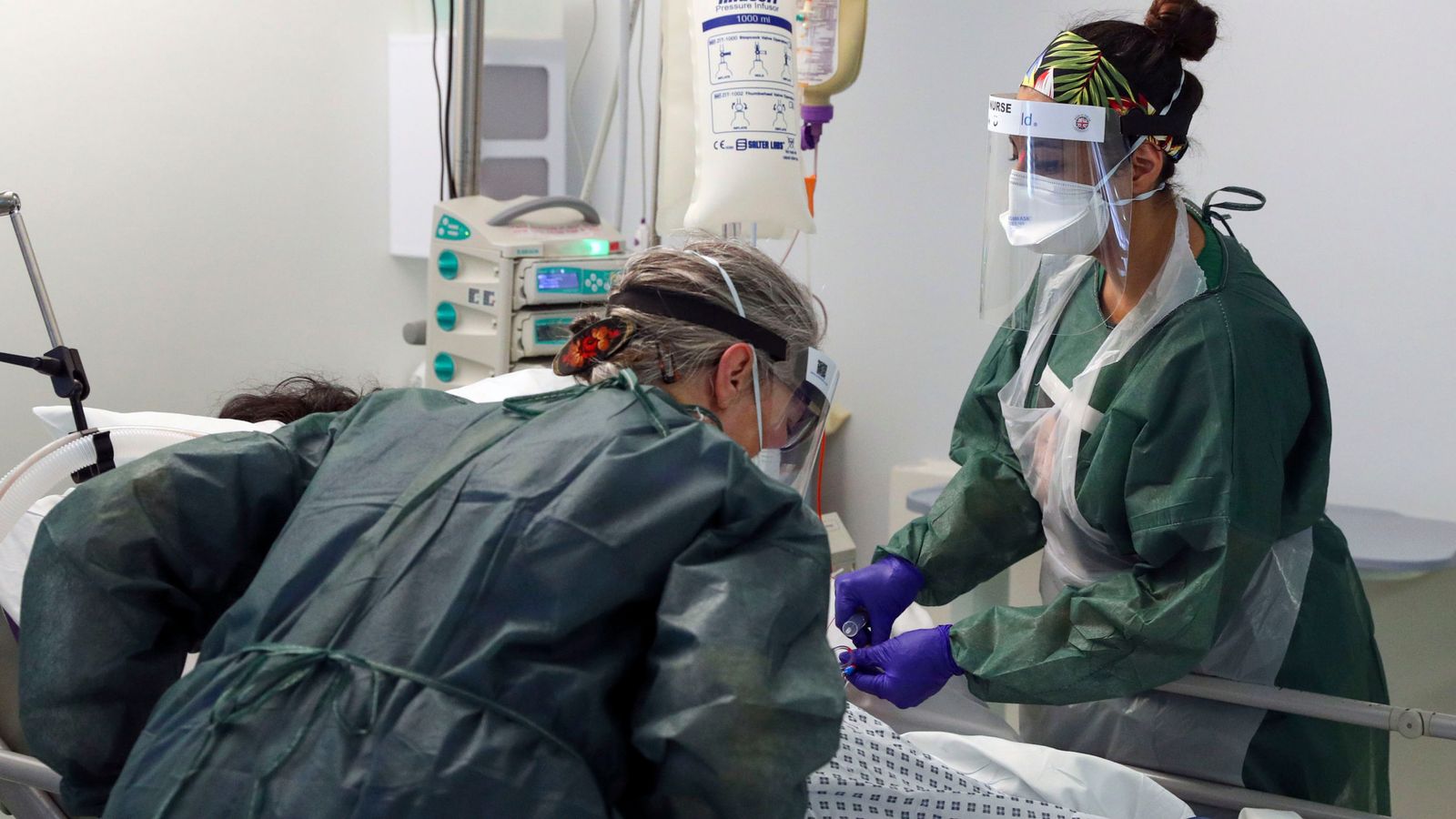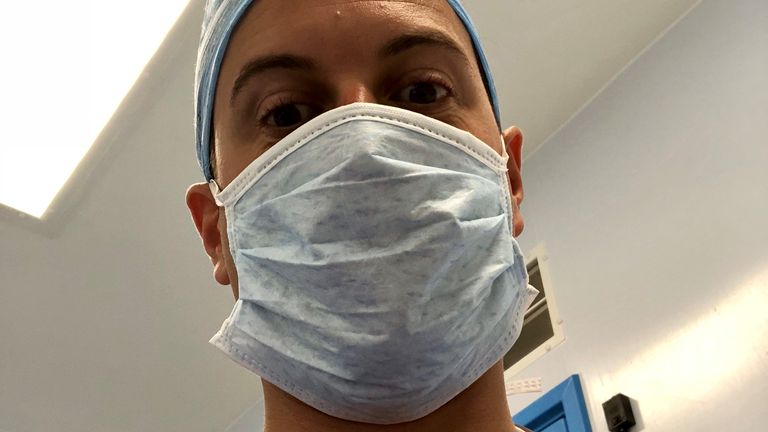Nearly three-quarters of coronavirus patients admitted to hospital suffer ongoing symptoms three months later, new research suggests.
A total of 81 patients out of 110 discharged from Southmead Hospital in Bristol were still experiencing symptoms from the virus, including breathlessness, excessive fatigue and muscle aches, after 12 weeks.
Many were struggling to carry out daily tasks such as washing, dressing or going back to work, the study found.
The majority of patients reported improvements in the initial symptoms of fever, cough and loss of sense of smell, and most had no evidence of lung scarring or reductions in lung function.
The findings are part of North Bristol NHS Trust’s Discover project, which is studying the longer-term effects of coronavirus – so-called Long COVID.
A total of 163 patients with coronavirus were recruited to the study, and of those 19 died.
The remainder were invited for a three-month check-up and 110 attended.
Most (74%) had persistent symptoms – notably breathlessness and excessive fatigue – with reduced quality of life.
Only patients who required oxygen therapy in hospital had abnormal radiology, clinical examination or spirometry – a test used to assess how well your lungs work – at the follow-up appointment.
An intensive care doctor told Sky News in June that he was still suffering COVID-19 symptoms three months after contracting the disease.
Dr Jake Suett, 31, had no underlying health conditions but was still suffering chest pain, breathlessness, blurred vision, memory loss, a high temperature, concentration problems.
The doctor, who works for the NHS in Norfolk, said at the time: “I still get out of breath doing the washing up or walking around the house.
“I spent three days just gasping for breath in bed, I really thought I was going to die, it was very distressing.
“Things have improved since then, but not much and only very, very slowly. I’ve had gastrointestinal symptoms and shooting pains in my hands and feet too.”
MPs from the All Party Parliamentary Group on coronavirus heard earlier this month from previously fit people whose lives have been turned upside down by a host of symptoms.
Claire Hastie, a member of a Long COVID support group on Facebook, described how she used to cycle 13 miles to work but can no longer walk 13 metres and is now largely confined to a wheelchair with her children providing much of her care.
The research at Southmead Hospital is due to continue, with researchers collaborating with the University of Bristol to look at the participant blood tests, rehabilitation therapies and psychological support.
Dr Rebecca Smith, from North Bristol NHS Trust, said: “There’s still so much we don’t know about the long-term effects of coronavirus, but this study has given us vital new insight into what challenges patients may face in their recovery and will help us prepare for those needs.”
Dr David Arnold, who is leading the Discover project, said the research helped to describe “what many coronavirus patients have been telling us: they are still breathless, tired, and not sleeping well months after admission”.
He added: “Reassuringly, however, abnormalities on X-rays and breathing tests are rare in this group. Further work in the Discover project will help us to understand why this is, and how we can help coronavirus sufferers.”

